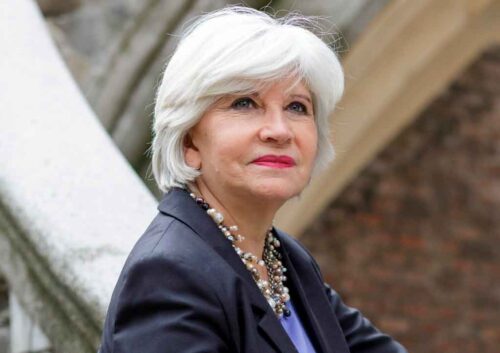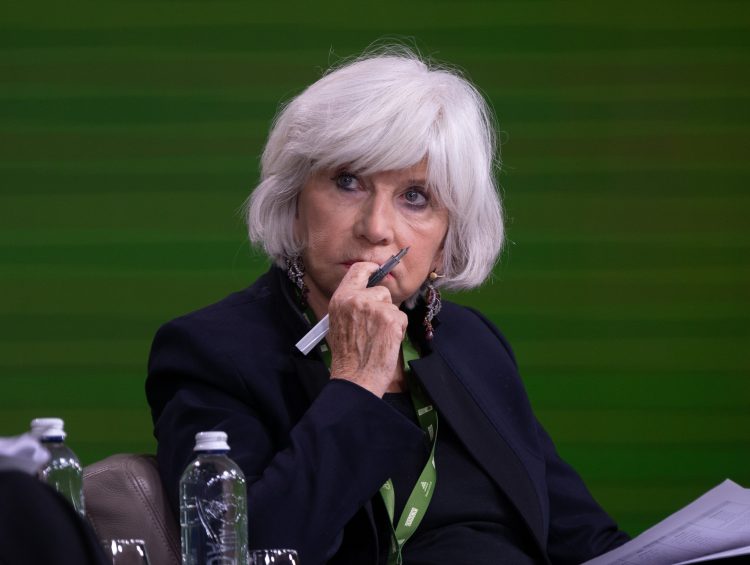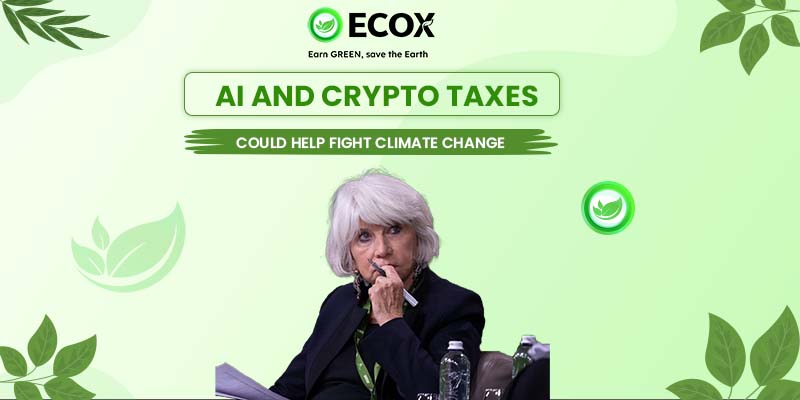Laurence Tubiana urges governments to tax energy-intensive technologies to fund climate action.
Governments should consider taxing artificial intelligence (AI) and cryptocurrency to raise funds for tackling the climate crisis, according to Laurence Tubiana, one of the key figures behind the Paris climate agreement.
Tubiana, now CEO of the European Climate Foundation and co-leader of the Global Solidarity Levies Task Force, said these technologies consume vast amounts of energy and should be subject to levies—just like other high-emission sectors.
“Crypto, in particular, isn’t regulated, and it’s a concern not just for climate, but for financial stability,” she said. “AI uses a lot of energy too – it should be part of the conversation.”
Bitcoin mining alone uses as much electricity as Poland each year. Meanwhile, demand from AI companies is placing increasing pressure on global power supplies.

While Tubiana acknowledged that taxing AI could be challenging – especially if companies relocate their data centers to avoid regulation – she said it’s worth exploring. Similarly, she expects some resistance to taxing cryptocurrencies, especially in countries like the US, but noted that central banks are starting to take interest due to concerns about crime and financial transparency.
The task force is also evaluating how such taxes could be implemented and monitored. A group of experts has been appointed to explore the practicalities.
Early Progress: Flight Levies and Global Support
The task force has already seen success with a new agreement to tax business-class and private jet flights. Countries like France, Spain, Kenya, and Barbados have signed on, with French President Emmanuel Macron calling on more nations to join.
“These industries benefit from globalisation – it’s only fair they help fund the fight against climate change,” Macron said.
Such levies could raise up to €147 billion annually if adopted by major economies. Demand for private jets surged by nearly 50% between 2019 and 2023, and business-class travel rebounded faster than economy post-Covid, making this tax both timely and broadly supported by the public.

Tubiana pointed out the fairness of the idea:
“When you drive a car, you pay tax. But when you fly, you often don’t. That imbalance needs fixing.”
Importantly, countries can impose these aviation taxes independently, without waiting for a global agreement.
Other Proposals On The Table
The task force is also looking into:
- A carbon tax on shipping, with further talks scheduled for October.
- A financial transaction tax—placing a small fee on stock market trades, which could raise up to €105 billion a year without disrupting markets.
Environmental groups are urging the task force to go even further. Greenpeace’s Rebecca Newsom said the next step should be taxing fossil fuel producers directly.
“Oil and gas companies are profiting while people suffer from extreme weather. It’s time they paid their fair share.”
Climate Leadership In Question
Tubiana also voiced concern over recent shifts in French climate policy. President Macron has hinted at delaying the EU’s goal of cutting emissions by 90% by 2040 – a move that could weaken global momentum ahead of the COP30 summit in Brazil.
“It’s disappointing,” Tubiana said. “If we don’t lead by example, how can we ask others to step up? Delaying climate action won’t help France’s economy – it will only hurt us in the long run.”
She urged leaders to focus on innovation, not hesitation:
“We need bold action now, not excuses.”
As the world looks for ways to make energy-hungry technologies like AI and crypto part of the climate solution, projects that blend innovation with environmental responsibility are more important than ever.
ECOX is one of those projects – a fresh, forward-thinking initiative that combines the power of crypto with a commitment to the planet. It’s not just about blockchain or sustainability on their own, but about building a future where the two work hand in hand.
This is the kind of direction global climate leaders like Laurence Tubiana are calling for: turning technology into a force for good.
If you believe in using innovation to drive real change, now’s the time to take part.
- Download the ECOX app
- or try the web version
to join a growing community that’s helping build a greener, tech-driven future.



